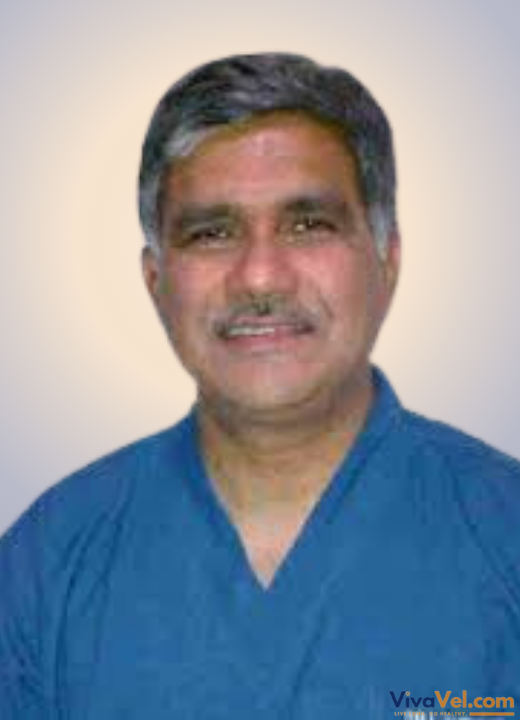info@vivavel.com
+919818262686
+919818262686
 info@vivavel.com
info@vivavel.com +919818262686
+919818262686Epilepsy is a brain disorder that causes individuals to experience frequent seizures. A seizure occurs when there is abnormal electrical activity in the brain. These seizures can vary in their appearance and sensation. Some people might shake uncontrollably, while others might stare blankly for a moment. Doctors mainly treat epilepsy with medications called anti-seizure drugs. These medicines help control and reduce the number of seizures. If medications don’t work, doctors may recommend alternative treatments, such as special diets or surgery. Managing epilepsy also requires regular check-ups with doctors to adjust treatments as needed. People with epilepsy need to follow their treatment plans and avoid triggers that can cause seizures. Maintaining a healthy lifestyle and having a support system can also help improve their quality of life. With proper treatment and care, many individuals with epilepsy can live normal, active lives.
 Symptoms of epilepsy vary depending on the type of seizure, but may include:
Symptoms of epilepsy vary depending on the type of seizure, but may include:
Generalized Seizures:
Tonic-clonic seizures: Sudden loss of consciousness, muscle stiffening, and convulsions.
Absence seizures: Brief periods of staring and unresponsiveness.
Myoclonic seizures: Sudden, brief jerks or twitches of the muscles.
Focal Seizures:
Simple focal seizures may involve sudden, unexplained feelings or sensations without loss of consciousness.
Complex focal seizures: Involve impaired awareness, which may include staring, automatisms (repetitive movements), or confusion.
Note: Symptoms may include confusion, memory loss, or changes in mood and behavior.

 Epilepsy can result from various factors, including:
Epilepsy can result from various factors, including:
Genetics: A family history of epilepsy can increase the risk.
Brain injury: Traumatic brain injury or stroke.
Infections: Conditions like meningitis or encephalitis.
Developmental disorders: Conditions present at birth, such as cerebral palsy.
Tumors: Abnormal growths in the brain.
Unknown causes: In many cases, the exact cause remains unidentified.
 Seek medical attention if:
Seek medical attention if:
Seizures are frequent or worsening.
First-time seizures occur.
Seizures last longer than 5 minutes or occur in succession without recovery.
Injuries occur during a seizure.
New symptoms develop, or current symptoms change.
 Doctors use various tests to diagnose epilepsy:
Doctors use various tests to diagnose epilepsy:
Medical History and Physical Exam: Assess symptoms and review the patient's health background.
Electroencephalogram (EEG): Measures electrical activity in the brain to identify abnormal patterns.
Imaging tests:
MRI: Offers detailed images of the brain's structure.
CT scan: Provides detailed images of the brain, often used to rule out other conditions.
Blood tests: Check for underlying conditions or metabolic imbalances.
 Do's:
Do's:
Take medications as prescribed: Consistency is essential for controlling seizures.
Maintain a healthy lifestyle by getting sufficient sleep, eating a balanced diet, and managing stress effectively.
Keep a seizure journal to Track seizures, triggers, and the effects of medication.
Inform others: Let family, friends, and coworkers know about your condition and how they can help during a seizure.
Wear a medical identification bracelet or necklace indicating your condition.
 Don'ts:
Don'ts:
Don’t skip medications: Missing doses can increase the risk of seizures.
Avoid known triggers: If stress, lack of sleep, or other factors trigger seizures, take steps to manage them.
Don’t ignore medical advice: Follow your doctor’s recommendations and attend regular check-ups.
Don’t drive without approval: Ensure you meet local regulations for driving with epilepsy.
Avoid risky activities: Be cautious with activities that could be dangerous if a seizure occurs, like swimming alone.
Disclaimer:
Our medical content authors have diligently gathered and synthesized information on this topic to offer valuable insights to our readers. Drawing from a range of reputable medical journals and health resources, this content aims to enhance understanding of the subject. It's essential to remember that while this information is informative, it should not replace personalized consultation or treatment from a qualified healthcare professional. For further details, please refer to our Editorial Policy.
For this topic, our authors used some of the following resources:
Clevelandclinic | Epilepsy
Johns Hopkins Medicine | Medical Management of Epilepsy
verywellhealth | What Is Epilepsy?





![]() Pusa Road, Radha Soami Satsang, Rajendra Place New Delhi, 110005 India
Pusa Road, Radha Soami Satsang, Rajendra Place New Delhi, 110005 India



![]() Budena Village, Sector 86, Faridabad, Haryana 121002, India
Budena Village, Sector 86, Faridabad, Haryana 121002, India



![]() C-1, Sushant Lok- 1, Sector-43, Phase- I, Gurugram, Haryana, 122002
C-1, Sushant Lok- 1, Sector-43, Phase- I, Gurugram, Haryana, 122002




![]() Lot 2, Jalan Baung 17/22, Seksyen 17, 40200 Shah Alam, Selangor Kuala Lumpur, 40200 (Malaysia)
Lot 2, Jalan Baung 17/22, Seksyen 17, 40200 Shah Alam, Selangor Kuala Lumpur, 40200 (Malaysia)


Dr. (Prof.) Rohit Gupta is a well-known neurologist in Faridabad, Haryana, India, with over 17 years of experience in clinical neurology. He achieved academic success...

Dr. Sandeep Ghosh is a highly regarded consultant neurologist, currently practicing at the esteemed Neurosciences Department of Accord Superspeciality Hospital in Faridabad, ...

Dr. Vikram Dua is one of India's top neuro and spine surgeons. With over 26 years of experience, he has performed over 10,000 surgeries, with a success rate excee...

Dr. LN Tripathy is a highly esteemed neurosurgeon with an impressive 31-year career. Since April 2010, he has been the Director of the Medica Institute of Neurologica...

Dr. Anish Kumar is a highly experienced medical professional with over 21 years of experience, including more than 11 years dedicated to neurology. He is currently a ...

Dr. Kaushik Sen is a highly esteemed senior consultant neurologist with over 18 years of post-DM experience in neurology. He holds a gold medal in MBBS, an MD i...
Treatment Plan & Cost within 2 days
